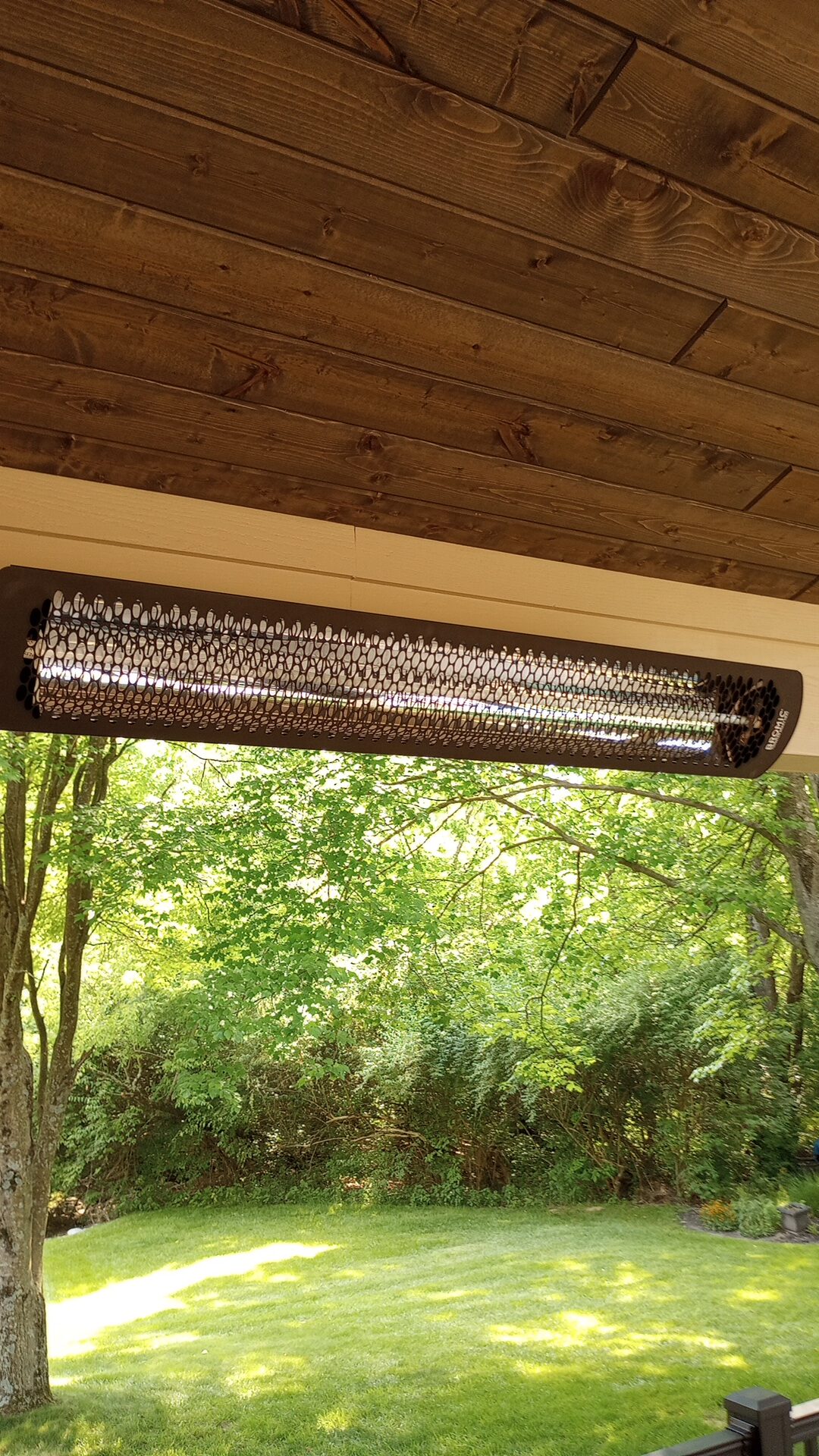
Electrical Troubleshooting 101: When to Call an Electrician for Help

Electrical issues are common in many households, and while some may seem minor at first glance, they can often be indicators of larger problems lurking beneath the surface.
From flickering lights to frequently tripping circuit breakers, it’s important to know when it’s time to stop troubleshooting on your own and call in a professional electrician. Attempting DIY fixes can be risky, leading to potential safety hazards, costly damage, or even electrical fires.
In this blog post, we’ll walk through some of the most common electrical problems homeowners might encounter, the dangers of attempting to fix them on your own, and when it’s crucial to call in a professional electrician.
Flickering or Dimming Lights: A Sign of Electrical Issues
One of the most common electrical problems homeowners encounter is flickering or dimming lights. While this issue might seem harmless, it can actually be a sign of more serious electrical concerns.
A. What Causes Flickering Lights?
There are several potential causes for flickering or dimming lights, including:
- Loose or Faulty Bulbs: Sometimes, the solution is as simple as tightening or replacing a loose bulb. However, if you’ve checked the bulb and the issue persists, there could be an underlying electrical problem.
- Wiring Issues: Loose wiring or connections in your light fixture or electrical panel can cause lights to flicker. Faulty wiring is a serious issue that can lead to electrical shocks or even fires, making it essential to have a professional electrician assess and repair the problem.
- Circuit Overload: If your lights dim when you turn on a large appliance, such as an air conditioner or washing machine, it could be a sign that the circuit is overloaded. This happens when too much power is being drawn from a single circuit, causing voltage drops and affecting the performance of other devices on the same circuit.
B. When to Call an Electrician for Flickering Lights
If your lights are flickering or dimming consistently and you’ve ruled out a simple bulb issue, it’s time to call an electrician. An experienced professional can diagnose whether the issue is caused by faulty wiring, overloaded circuits, or another underlying electrical problem. Ignoring the issue could lead to serious consequences, such as electrical shocks or fires.
Frequently Tripping Circuit Breakers: A Warning Sign
Circuit breakers are designed to protect your home from electrical overloads by cutting off power when they detect an unsafe level of current. While an occasional trip may be normal, frequent breaker trips are often a sign of a larger issue.
A. Common Causes of Tripped Circuit Breakers
Here are some of the most common reasons why a circuit breaker might trip:
- Overloaded Circuits: When too many devices are plugged into a single circuit, it can exceed the circuit’s capacity, causing the breaker to trip. This is especially common in older homes with limited circuits.
- Short Circuits: A short circuit occurs when an electrical current travels along an unintended path, often due to faulty wiring or damaged components. Short circuits are dangerous and can cause sparks, electrical shocks, or fires.
- Ground Faults: A ground fault occurs when a live wire comes into contact with a grounded surface, such as metal or water. This can cause the breaker to trip as a safety measure.
B. When to Call an Electrician for Tripped Breakers
If your circuit breaker trips occasionally, you can try reducing the number of devices plugged into that circuit. However, if the breaker trips frequently, especially after you’ve unplugged devices, it’s time to call an electrician. Frequent trips could indicate a more serious issue, such as a short circuit or wiring problem, both of which require professional attention. An electrician can safely inspect your electrical panel, identify the cause, and make any necessary repairs or upgrades to prevent future issues.
Dead Outlets: Not Just an Inconvenience
Dead outlets are another common electrical issue homeowners face. When an outlet suddenly stops working, it’s tempting to assume it’s a minor problem. However, dead outlets can sometimes be a symptom of a more significant electrical problem.
A. What Causes Dead Outlets?
Several factors can cause an outlet to stop working, including:
- Tripped GFCI Outlet: Ground Fault Circuit Interrupter (GFCI) outlets are designed to cut off power when they detect a ground fault. If an outlet in your bathroom, kitchen, or outdoor area has stopped working, it may be because the GFCI has tripped. You can try resetting it by pressing the “reset” button on the outlet.
- Loose or Damaged Wiring: If an outlet’s wiring is loose or damaged, it may not receive power. This is especially common in older homes where the wiring has degraded over time. Damaged wiring can be a serious fire hazard, so it’s important to have an electrician inspect and repair it as soon as possible.
- Faulty Outlet: Sometimes, the outlet itself may be faulty and need to be replaced. This is common with outlets that have been overused or exposed to moisture.
B. When to Call an Electrician for Dead Outlets
If resetting the GFCI outlet doesn’t restore power or if you’ve noticed multiple outlets not working, it’s time to call an electrician. Dead outlets can be a sign of loose or damaged wiring, which poses a serious fire risk. A professional electrician will be able to diagnose the problem and safely restore power to your outlets.
Burning Smells or Warm Outlets: A Red Flag for Fire Hazards
One of the most alarming electrical issues you might encounter is the presence of a burning smell or an outlet that feels warm to the touch. These are both red flags that should never be ignored, as they often indicate a serious electrical problem.
A. What Causes Burning Smells or Warm Outlets?
There are several potential causes for these issues, including:
- Overheating Wires: When electrical wires become overloaded or are not properly installed, they can overheat, melting the insulation around them and emitting a burning smell.
- Loose Connections: Loose or corroded connections inside outlets can create resistance, causing the outlet to overheat and potentially start a fire.
- Faulty Appliances: Sometimes the problem lies with the appliance plugged into the outlet. If the appliance is faulty, it can cause the outlet to overheat or produce a burning smell.
B. When to Call an Electrician for Burning Smells or Warm Outlets
If you notice a burning smell or a warm outlet, turn off the power to the affected area and call an electrician immediately. These symptoms are often precursors to electrical fires, and the issue needs to be addressed as soon as possible. A professional will be able to inspect the wiring, outlet, and any connected devices to determine the cause and make the necessary repairs.
Frequently Flickering Power: Fluctuations in Electrical Supply
Experiencing frequent fluctuations in your home’s power supply, such as sudden dimming or surging, can be a sign of electrical issues. While it’s not uncommon for lights to dim slightly when large appliances turn on, frequent or severe fluctuations should be investigated by a professional.
A. What Causes Power Fluctuations?
Common causes of power fluctuations include:
- Overloaded Circuits: As mentioned earlier, overloading a circuit can cause voltage drops, leading to dimming lights and poor appliance performance.
- Faulty Wiring: Loose or damaged wiring can cause intermittent connections, resulting in fluctuating power levels.
- External Power Grid Issues: Sometimes, fluctuations in your home’s power supply may be caused by problems with the local power grid or utility provider.
B. When to Call an Electrician for Power Fluctuations
If you’re experiencing frequent power fluctuations, an electrician can help determine whether the issue is inside your home or caused by the external power grid. They will inspect your wiring and circuits, identify any potential issues, and recommend solutions to stabilize your electrical supply.
The Importance of Professional Help
While it may be tempting to troubleshoot and fix minor electrical issues yourself, many common problems are symptoms of larger, more dangerous issues that require professional intervention. Flickering lights, frequent breaker trips, dead outlets, burning smells, and power fluctuations are all indicators that something may be wrong with your home’s electrical system.
By calling in a licensed electrician, you can ensure that these issues are properly diagnosed and repaired, preventing potential safety hazards such as electrical fires and shocks. Remember, when it comes to electricity, safety should always come first.
If you’re experiencing any of these electrical issues in your home, don’t hesitate to contact a professional electrician to assess the problem and provide expert solutions.


